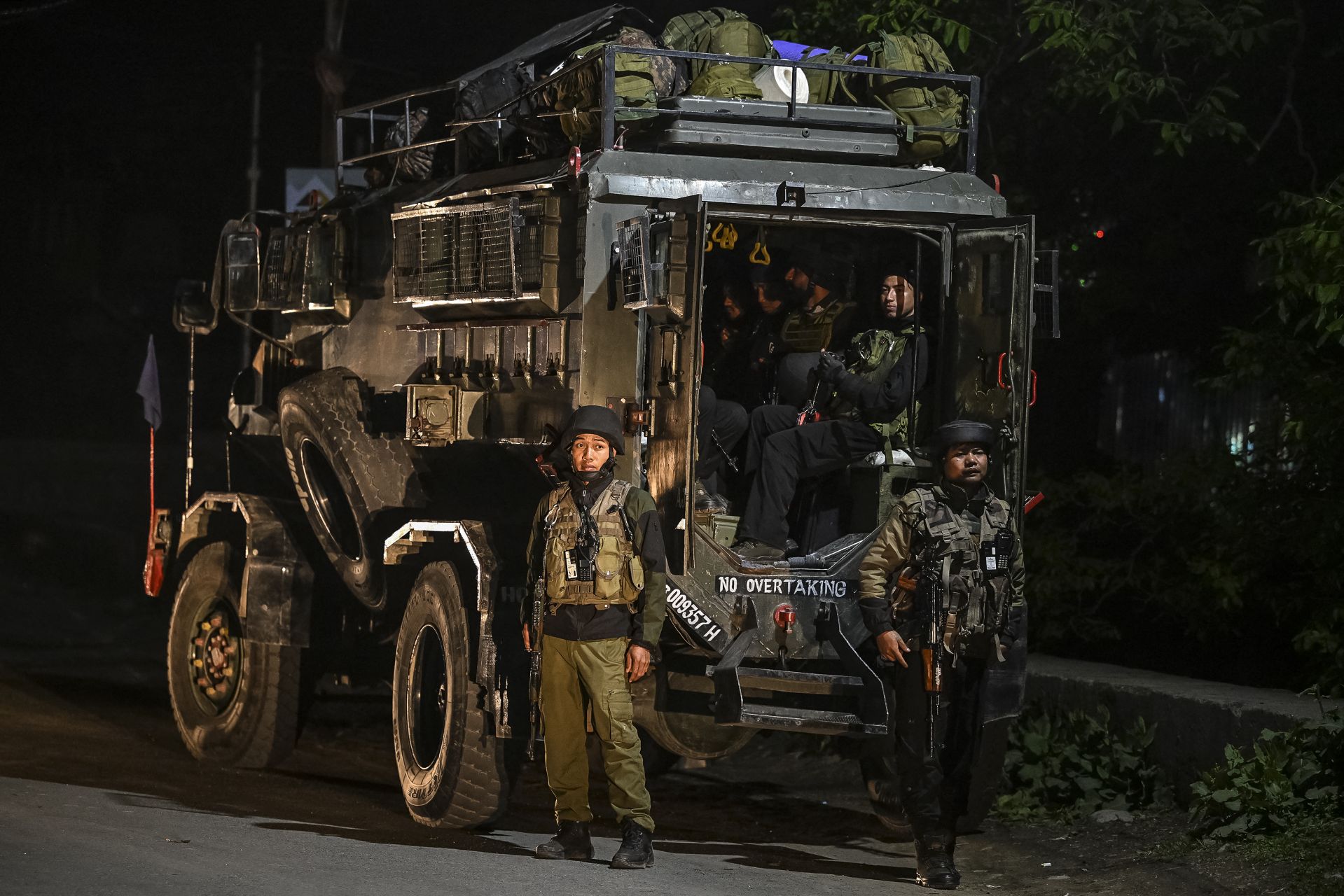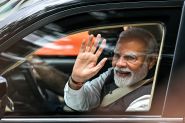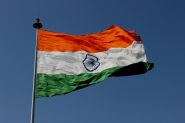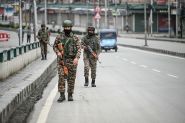- Home
- Middle East
- Pakistan Says India Planning Strike After Deadly Kashmir Attack

At least 24 people were killed in Indian-administered Kashmir when gunmen opened fire on tourists on April 22, a senior police officer told AFP, with authorities calling it the worst attack on civilians in years. Prime Minister Narendra Modi decried the "heinous act" in the summer retreat of Pahalgam, pledging the attackers "will be brought to justice". ©Tauseef MUSTAFA / AFP
Pakistan said on Wednesday it had "credible intelligence" that India was planning an imminent military strike and vowed to retaliate, as the United States appeals to both sides to de-escalate after a deadly attack in Kashmir.
Already frosty relations between the nuclear-armed neighbours have plummeted further since New Delhi blamed its arch-rival Pakistan for last week's assault on tourists in Pahalgam in Indian-administered Kashmir, the deadliest attack on civilians there in a quarter of a century.
Indian Prime Minister Narendra Modi gave the military "complete operational freedom" to respond to the attack during a closed-door meeting on Tuesday, a senior government source told AFP.
Pakistan's government has denied any involvement in the shooting and vowed that "any act of aggression will be met with a decisive response".
"Pakistan has credible intelligence that India intends to launch a military strike within the next 24 to 36 hours using the Pahalgam incident as a false pretext," information minister Attaullah Tarar said in a statement early on Wednesday.
However, Foreign Minister Ishaq Dar also said Pakistan would not strike first.
Later in the day, Pakistan's Prime Minister Shehbaz Sharif issued a statement saying he had protested "India's escalatory and provocative behaviour" in a phone call with US Secretary of State Marco Rubio.
Rubio, in a US readout of the call, told Sharif of the "need to condemn the terror attack" in Kashmir.
Rubio "urged Pakistani officials' cooperation in investigating this unconscionable attack," State Department spokeswoman Tammy Bruce said.
The United States has close relations with India and has voiced solidarity.
But Rubio, in a telephone call with India's top diplomat Subrahmanyam Jaishankar, also "encouraged India to work with Pakistan to de-escalate tensions and maintain peace and security in South Asia," Bruce said.
In a sign of mounting tensions, New Delhi on Wednesday closed its airspace to Pakistani airplanes, after Islamabad banned Indian planes from overflying, in the latest tit-for-tat measure.
Muslim-majority Kashmir, a region of around 15 million people, is divided but claimed in full between Pakistan and India which have fought three full-fledged wars since their separation at birth in 1947.
About 1.5 million people live near the ceasefire line on the Pakistani side of the border, where residents were preparing for violence by readying simple, mud-walled underground bunkers reinforced with concrete if they could afford it.
"We are cleaning the bunker to ensure that if the enemy attacks at any time, we are not caught off guard and we can bring our children to safety," 42-year-old Muhammad Javed told AFP in the village of Chakothi.
De-escalation calls
Both sides said on Wednesday they had repeatedly traded gunfire for a sixth straight night across the Line of Control (LoC), a heavily fortified zone of high-altitude Himalayan outposts that represents the de facto Kashmir border.
Another Pakistani security source told AFP that two drones were shot down on Tuesday near the LoC "after violating our airspace".
The two sides discussed the violations in a weekly call on Tuesday, the country's army spokesman Lieutenant General Ahmed Sharif Chaudhry told a press conference on Wednesday, adding that the details of the routine call are not usually made public.
A defense source in India confirmed the director generals of military operations in both countries talked over a hotline.
Since the Pahalgam attack there have been tit-for-tat diplomatic barbs, expulsion of citizens and border crossings shut.
Modi vowed last week to pursue those who carried out the attack and those who had supported it.
"We will pursue them to the ends of the Earth," he said.
Wanted posters
Rebels in the Indian-run area of Kashmir have waged an insurgency since 1989, seeking independence or a merger with Pakistan.
Indian police have issued wanted posters for three men accused of carrying out the Kashmir attack -- two Pakistanis and an Indian -- who they say are members of the Pakistan-based Lashkar-e-Taiba group, a UN-designated terrorist organisation.
They have announced a two million rupee ($23,500) bounty for information leading to each man's arrest and carried out sweeping detentions seeking anyone suspected of links to the alleged killers.
The worst attack in recent years in Indian-run Kashmir was at Pulwama in 2019, when a suicide bomber rammed a car packed with explosives into a security forces convoy, killing 40 and wounding 35.
Indian fighter jets carried out air strikes on Pakistani territory 12 days later.
By Zain Zaman Janjua with reporters in New Delhi
Read more



Comments